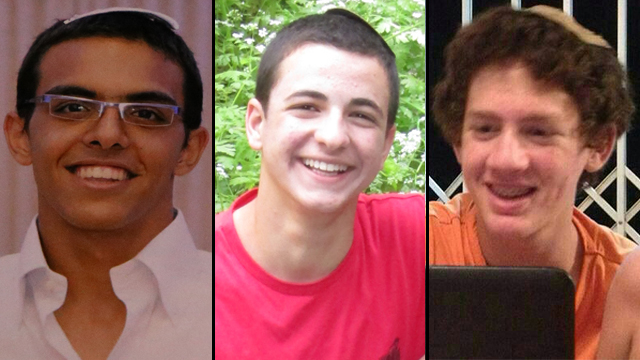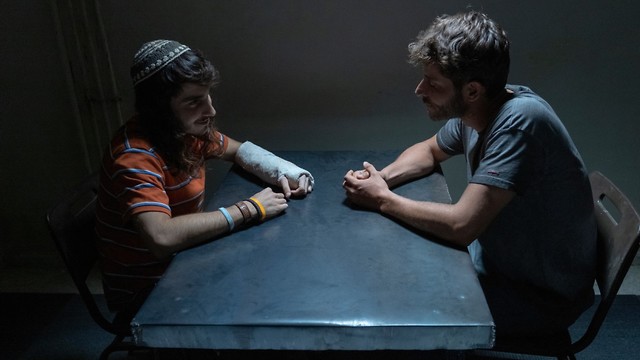

The tale of a terrible summer, 'Our Boys' is punch to Israel's gut
HBO's new series doesn't look to clear the Israeli collective conscience, but to air all the dirty laundry and offer a glimpse at a racist and violent country, which it does with honesty, complexity and great audacity; the result is not flattering or easy to digest, but it is television at its best
HBO's new show "The Boys" details the story of the bloody events that took place in Israel in summer 2014, when three Israeli teens - Eyal Yifrah, Gilad Shaer and Naftali Fraenkel were kidnapped and murdered by members of the Hamas terror group.
In retaliation, three settlers kidnapped and murdered 16-year-old Palestinian teen Muhammad Abu Khdeir in East Jerusalem. The show presents a grim reality, which is gradually revealed without impulsive, raging commentary, but with bone-chilling honesty.
"Our Boys" tries to spark a debate and expand the boundaries of the public discourse accepted in Israel. Everyone has a place in this discussion: the Israeli viewers, the Palestinians and even the Americans.
Unlike other successful TV shows based on the tough reality of Israel (like "Homeland," a Hollywood adaptation of Israeli hit series "Prisoners of War" and "Fauda," the tale of undercover Israeli agents working in the Palestinuian territories, whose broadcasting rights were bought by Netflix back in 2016), "Our Boys" is not an action series laden with plot twists, but a complex thriller based on a true story.
In their humble and careful way, the creators of the show - Hagai Levi, Joseph Cedar and Tawfik Abu-Wael - create a real drama that delves deeply into the characters and has a profound impact on the viewers.
The show opens with the kidnapping of the three Israeli teens by Hamas terrorists.
The media covers the event non-stop, security services search frantically and the entire country prays for the boys to come home safely.
Only Simon (played by Shlomi Elkabetz), a senior officer in the Shin Bet security service, has something in mind.
The creators of the show incorporate snippets of archived videos and real news reports and use them wisely to illustrate the public sentiment in Israel during those terrible days - the mass prayers, the huge demonstrations, the speeches and the brave statements made by the teens' parents.
The documentary material fits perfectly into the growing drama taking place on the streets and in the Shin Bet operations room.
American audiences will surely recognize similarities, especially at these tense times, to the violent, fascist energies promoted by white supremacist organizations.
Like in the recent El Paso mass-shooting, that was committed by a motivated young man, inspired by racist sentiments – the horrifying murder of Mohamed Abu Khdeir was committed by a young man fueled by the heated public discourse.
This is the exact scenario; which Simon unsuccessfully tries to prevent.
At this point, the plot makes a quick turn and drives the series to deal with the Palestinian boy's murder investigation.
Simon's investigation is done meticulously as public tensions rise and start affecting decision makers. The political echelon is pushing for a quick resolution of Abu Khdeir's murder as a case of clan conflict or honor killing.
Every small rumor - such as the one circulated that young Muhammad was gay and paid for it in his life - becomes a main line of investigation.
The establishment clings to any possible scenario, other than a Jew murdering for nationalistic reasons.
"Our Boys" depicts Israeli society as a violent, zealous and racist society.
The "Death to the Arabs" cries heard from the Jewish protestors may be understood in Israel and abroad in light of the terrible national trauma Israel has undergone after the abduction of the three boys; but it raises a worrying question.
What would have happened if it weren't for people like Simon and the different enforcement agencies trying to restrain the public rage, or a strong, assertive law system that protects Israeli democracy and separates it from other tyrannical regimes.
The show's content is problematic for Israel's international image, but "Our Boys" is not propaganda.
It doesn't tell lies to raise morale - but boldly strives for complexity and honesty.


















